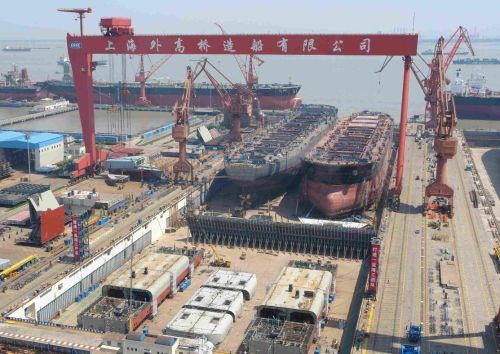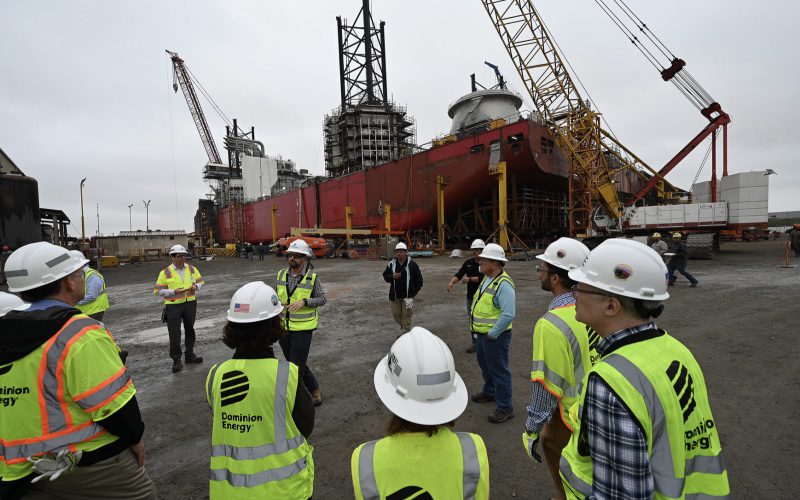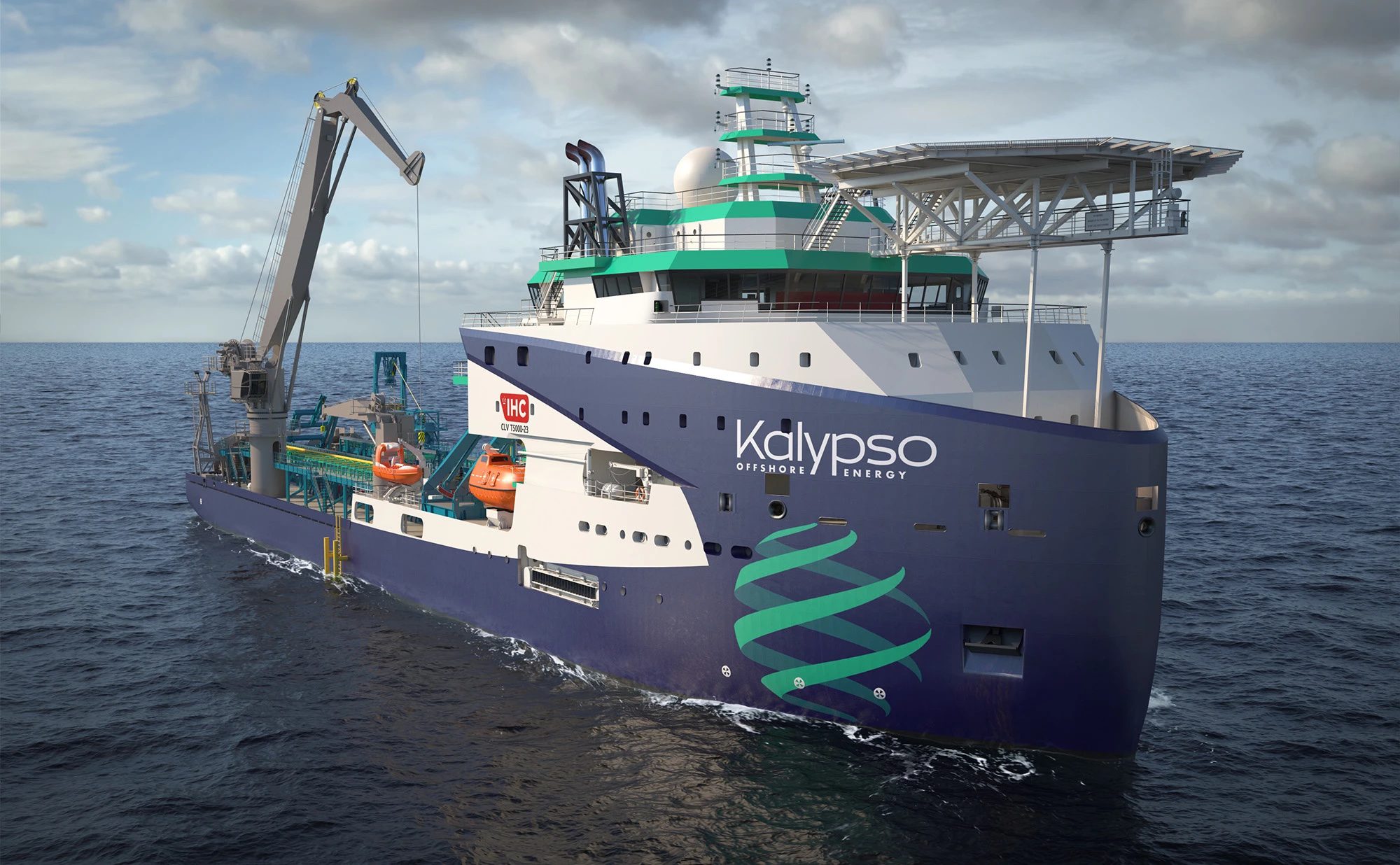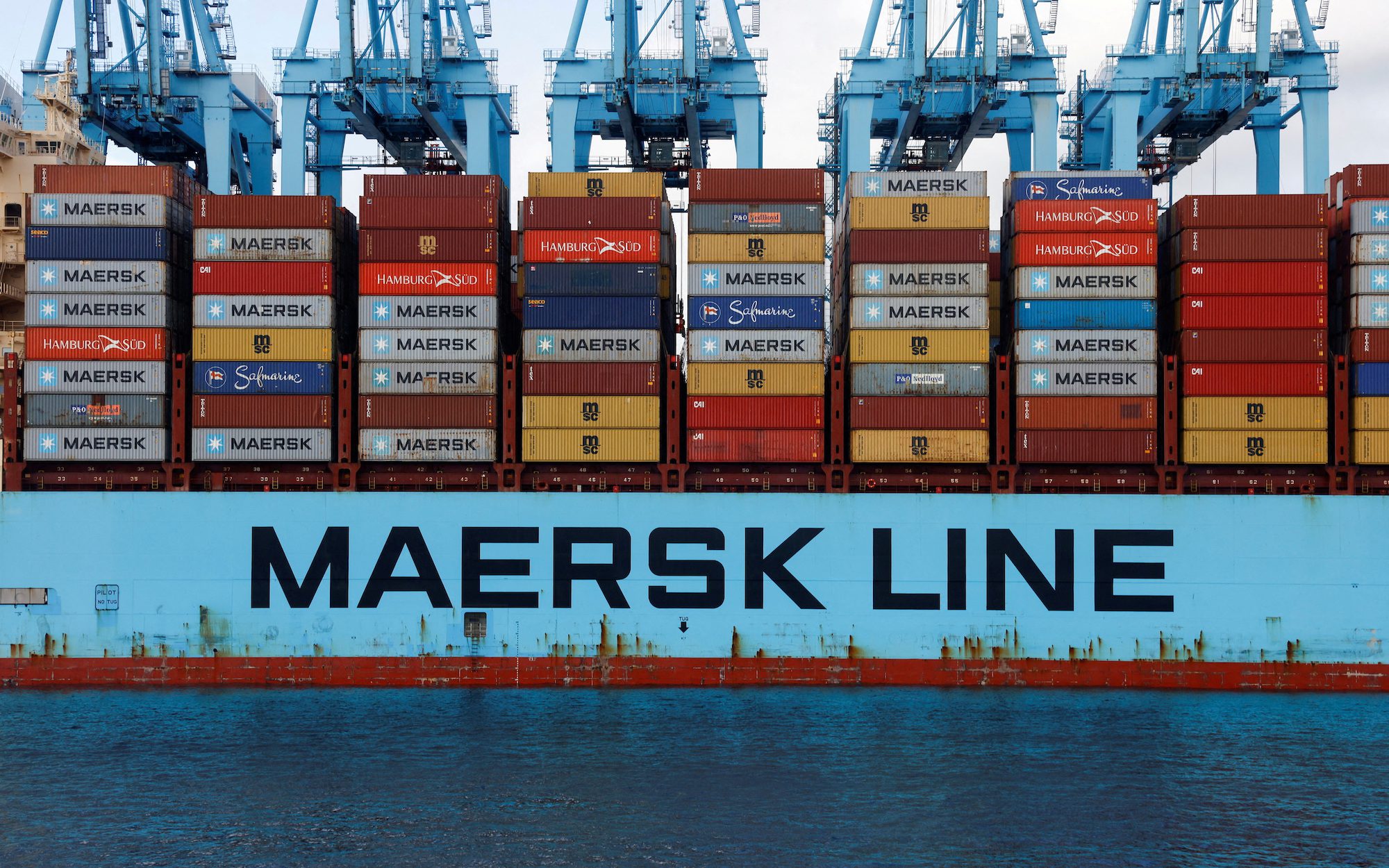Shanghai Waigaoqiao Shipbuilding
(Bloomberg) — Cargill Inc., the agricultural trader that accounts for 2 percent of world freight, is ordering new ships in a reversal of a policy against owning commodity vessels after prices reached a 20-year low.
A letter of intent to buy Capesize ships was signed with Shanghai Waigaoqiao Shipbuilding Co., Roger Janson, head of Cargill’s ocean-transportation business, said yesterday by e- mail. He gave no details on how many vessels would be ordered. Capesizes are the largest carriers of dry-bulk raw materials and haul 90 percent of the iron ore transported by sea.
“Cargill will continue to look for ways to better serve our customers through an enlarged, modern and fuel-efficient fleet and will continue to look for opportunities in all sizes,” Janson said.
The owner of grain elevators, cocoa-processing plants and ethanol refineries began chartering ships in the early 1960s and purchased its first vessel in 1967, according to its website. Cargill, located in Minneapolis, changed its policy of owning vessels and shifted to chartering ships on a longer-term basis in 2001, the site showed.
Cargill is a shareholder in a joint venture established in 2011 that signed the letter of intent, Janson said.
The trader is the largest closely held U.S. company and generates mineral cargoes equating to more than half of the 185 million metric tons of freight it ships globally each year, according to its website. Cargill controls more than 350 ships at any one time, the site showed.
Minerals, Grains
The company’s ocean-transportation division was 2012’s third-largest hirer of vessels that carry minerals and grains, according to figures from Clarkson Plc compiled by Bloomberg. Overall world trade totaled 8.7 billion tons in 2011, according to the United Nations.
The price of a new Capesize reached $46 million this month, the lowest since October 2003, according to Clarkson, the biggest shipbroker. The ships, each able to hold 160,000 tons of cargo, cost as much as $97 million in December 2007.
Prices for newly built vessels are the lowest since the late 1990s when adjusted for inflation and are unprofitable for shipyards, Jefferies Group Inc. said in a report this month. Costs for new vessels will rise 15 percent on average, the New York-based investment bank predicted.
– Michelle Wiese Bockmann, Copyright 2013 Bloomberg.
Unlock Exclusive Insights Today!
Join the gCaptain Club for curated content, insider opinions, and vibrant community discussions.

 Join The Club
Join The Club













